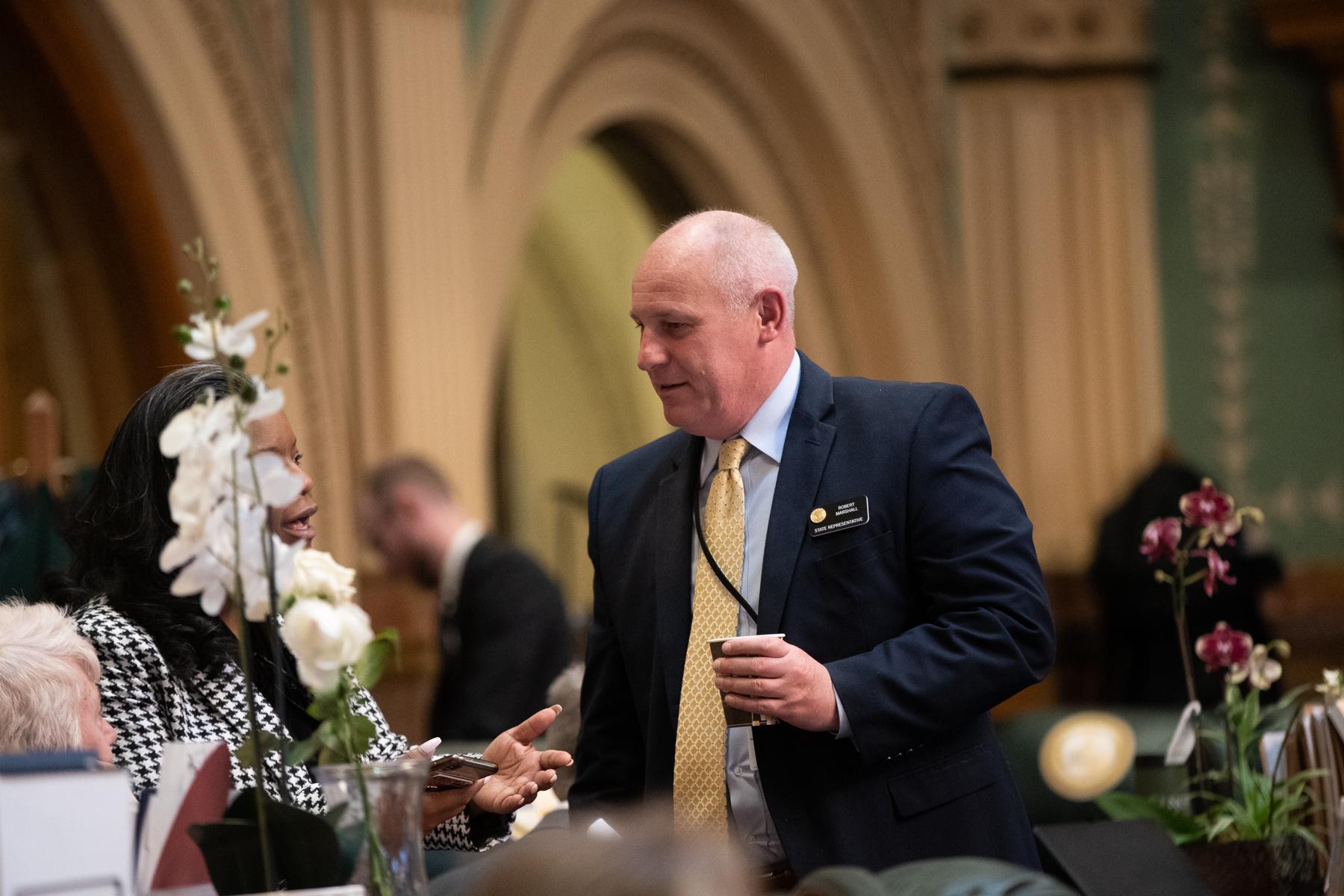
The legal case that saw Democrats suing Democrats at the state Capitol this summer has reached a settlement, pending court approval.
State lawmakers in the House would no longer be allowed to use auto-delete functions on any messaging apps when discussing public business. And they would be banned from having secret meetings to hash out political strategies or plan votes, an alleged violation of Colorado’s Open Meetings Law.
“I’m gratified that the House leadership accepted that there’s an issue that needs to be worked out and then we can move forward to modernizing the law into something that is workable,” said Democratic state Rep. Bob Marshall of Highlands Ranch, who filed the lawsuit along with his colleague Democratic state Rep. Elisabeth Epps of Denver.
Epps and Marshall sued the leaders of both parties in the House in July, alleging that lawmakers routinely broke both transparency and open meetings laws at the statehouse.
On Friday, the plaintiffs submitted a proposed agreement that would end the court battle. The settlement applies to the House, but not the Senate. It must be approved by a judge before it can take effect.
Marshall told CPR News that he expects to see legislation next session to modernize Colorado’s open meetings laws, adding that Epps is working on a potential bill. CPR reached out to Epps but has not received a comment from her yet.
Democratic House Leaders Speaker Julie McCluskie and Majority Leader Monica Duran said in a written statement that House Democrats believe deeply in the values of transparency and open government.
“And through this agreement, we continue our commitment to ensuring full public access, transparency and fairness in the legislative process,” the statement read.
Republican House leaders also signed off on the proposed settlement through their attorneys. A spokesman for the Republican caucus said he couldn’t comment immediately, but Republicans planned to meet soon — in public — to discuss the potential settlement.
Marshall said right now it’s too easy for lawmakers to avoid following the rules that voters created, and he hopes updates will increase trust in government. He said he’s had pushback from some Capitol insiders who are upset he’s challenging the current system. But others have praised him, he added.
“People from marginalized communities understand it completely and say we’re locked out and we don’t see what’s happening,” said Marshall.
It’s been a longstanding practice for lawmakers to meet behind closed doors with their political allies at the Capitol.
For example, the political caucuses — which are the respective groups of Democrats and Republicans in the legislature — might hold an unannounced meeting to talk about their plans for passing or defeating a particular bill. Or the Democratic members of a committee might gather before a hearing to have an advance discussion about the bills on the agenda, sometimes with the goal of keeping inter-party disagreements from spilling into public view.
Such meetings are common at the legislature, but they are illegal under the open meetings law. The law says that if a quorum of a public body is gathering to discuss public business — including for committees and caucuses — they must publish advance notice, and they must provide meeting minutes afterward.
While the meetings have been used to hash out disagreements and build consensus among party members, bills still have to go through the official public process, including committee hearings and debate on the floor.
Some lawmakers and political observers have said closed door meetings are critical to negotiate compromises and help lower the political temperature enough to reach consensus on thorny issues.
Colorado’s transparency laws are stricter than many other states’ in some areas, especially when it comes to political caucus meetings. A meeting of just two lawmakers in Colorado may be considered open to the public. The law was created by voters through a citizen initiative in 1972.
As part of the settlement the defendants will have to pay $13,000 to cover the plaintiffs’ legal fees, a cost that will be picked up by the taxpayer-funded budget for the legislature. Epps and Marshall were represented by attorney Steve Zansberg. Zansberg also represents CPR News in First Amendment and open records cases.
The agreement “does not establish wrongdoing by any party,” and, if finalized, will stay in place until the legislature updates the open meetings law, which many lawmakers have said will be necessary.
Meanwhile, another transparency fight continues: A conservative group recently sued over Democrats' use of an anonymous internal polling system to set budget priorities, alleging that those rankings and how lawmakers voted should be a public record.
Editor's Note: An earlier version of this story said House Republicans would meet on Wednesday about the settlement. It has been corrected to reflect that they are still in the process of scheduling that meeting. This article was also updated with information about attorney's fees.









